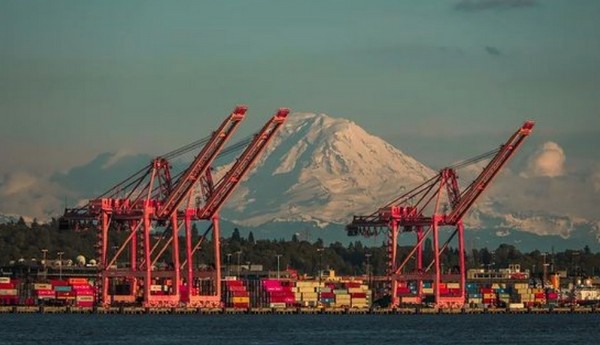Yesterday, the Pacific Maritime Association (PMA) reported that the International Longshore and Warehouse Union (ILWU) “continued to stage disruptive work actions that led to containerized terminal operations coming to a halt. In some cases, the Union slowed down operations, resulting in longshore workers being sent home. On another shift, the Union failed to dispatch longshore workers which effectively shut down the port,” says the PMA.
The organization says the disruptive actions by the union are contrary to a press release issued by the ILWU on Saturday in which ILWU president Willie Adams was quoted saying, “Despite what you are hearing from PMA, West Coast ports are open as we continue to work under our expired collective bargaining agreement.”
The PMA says that for months, the ILWU has staged disruptive work actions targeting the West Coast’s largest ports which have either slowed or closed operations. In turn, the association says this has impeded the supply chain and left ships and American exports they carry sitting idle at the docks. Reports indicate that thanks to the slowdowns and stoppages last week, an estimated $5.2 billion of trade is floating off the Ports of Los Angeles, Long Beach and Oakland.

Monitoring the situation
Over at the Northwest Seaport Alliance, it manages the marine cargo properties at both the Port of Seattle and the Port of Tacoma. “The NWSA is tracking operations closely and remains in contact with terminal operators, labor, cargo owners, and other supply chain stakeholders. Our business development team works closely with agriculture exporters that use our gateway and are providing operational updates to assist producers in getting their goods to market,” says Melanie Stambaugh, director of communications with the alliance. She also notes that each terminal operator is making its own decisions regarding operations, which vary across the gateway, and today, the level of operations varies by terminal and in each harbor.
Where does that leave Washington grower-shippers? Steve Reinholt is the export sales manager at Starr Ranch Growers, a tree fruit grower-shipper based in Wenatchee, Washington and he says Starr Ranch had three containers set to be delivered to the Port of Seattle. “Due to the slowdowns, the vessel skipped Seattle and we had to move them to Tacoma for loading,” he says. “There is a meaningful amount of inland freight and handling costs that we will have to pay. That is an example of how the labor issues hurt the producers and consumers rather than the shipping lines that the ILWU is trying to target. It’s really frustrating as we are stuck in the middle and in most cases, we are having to bear the costs.”
For more information:
Melanie Stambaugh
Northwest Seaport Alliance
https://www.nwseaportalliance.com/
Steve Reinholt
Starr Ranch Growers
https://starranch.com/
